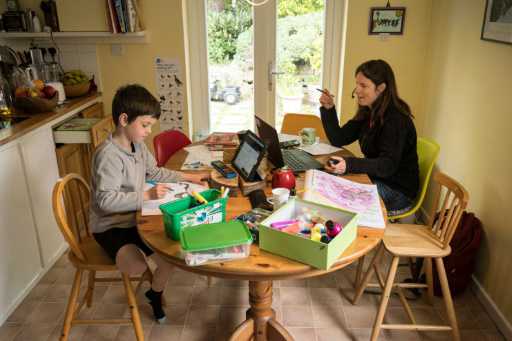Women of all ages bear the brunt of virus fallout found in workplace
24 June, 2020

The reverberating monetary shock of the coronavirus crisis has delivered an enormous setback for women because so many work in the badly exposed services sector, experts say.
The nature of the outbreak means women are much more likely than men to reduce or quit their jobs in vulnerable low-paying workplaces like bars, conference venues, hairdressing salons, hotels, pubs and restaurants, which faced comprehensive shutdowns.
College closures during lockdown possess exacerbated the problem because more women than men tend to look after and teach their children, whilst working from home.
The companies sector, covering areas like hospitality and leisure, possesses been ravaged by lockdowns imposed simply by governments around the world trying to prevent the pass on of the disease.
"In the united kingdom and the U.S., women much more likely to lose their jobs because they're much more likely to work in providers," said Cambridge University economics lecturer Christopher Rauh.
"When you eliminate your task you are not merely losing income now -- but also down the road," he told AFP.
As lockdowns convenience and infection prices and deaths fall, the solutions sector can often be the previous to reopen since it tends to count on large numbers of individuals in close contact.
In Britain, stay-at-own home measures started to be relaxed earlier this month but pubs, bars and restaurants are expected to reopen only from July 4.
The phased reopening in England started with outdoor marketplaces and car showrooms, plus some youngsters also returned to school.
However, not absolutely all primary school kids will return prior to the lengthy summer months break that begins in mid-July and runs before start of September.
Within family units, moms have already been 1.5 times much more likely than fathers to lose or quit their jobs because the crisis began, according to think-tank the Institute of Fiscal Studies.
Women are also more likely than men to have been furloughed, or perhaps temporarily paid by the united kingdom government's careers retention scheme, it added.
Moms traditionally assume a larger share of unpaid housework along with their paid work.
Sarah, who works found in London's film industry, stays up each day until 1 a.m. to meet up deadlines, prolonged after her son and daughter have attended bed.
"I did so not dare ask my bosses for a special work arrangement -- I did so not want them to believe I can't manage," she told AFP.
Single parents face sustained demands with 1 fewer couple of hands.
"In the beginning of lockdown it had been atrocious," said a single mother employed in the pharmaceutical sector found in Paris who declined to provide her name.
"I couldn't organize myself properly, juggling video tutorial conferences, distance education, cooking meals and doing housework... and pondering what time to stop work at night," she told AFP.
She described her morning as a "marathon" that left her exhausted.
"Among my single parent friends, it has been the mom who has looked after kids during lockdown. It feels as though we will be turning again the clock to 50 years back," she said.
The Financial Occasions also wondered if the COVID-19 health emergency has set women back decades.
"May be the coronavirus crisis acquiring women back to the 1950s?" the daily organization newspaper asked in a comment part this month, citing unfair requirements put on female workers.
In contrast with the current health emergency, men were at the razor-sharp end when the notorious 2008 global financial crisis sparked the prior global recession.
That badly hurt production sectors such as for example construction and manufacturing.
"During the 2008 recession... guys were the first ever to be hit," stated C Nicole Mason, brain of the US-centered Institute for Women's Policy Analysis think tank. "These times, because ladies are over-represented in the support sector, they'll experience disproportionately bigger unemployment and job reduction compared to men."
Source: japantoday.com
